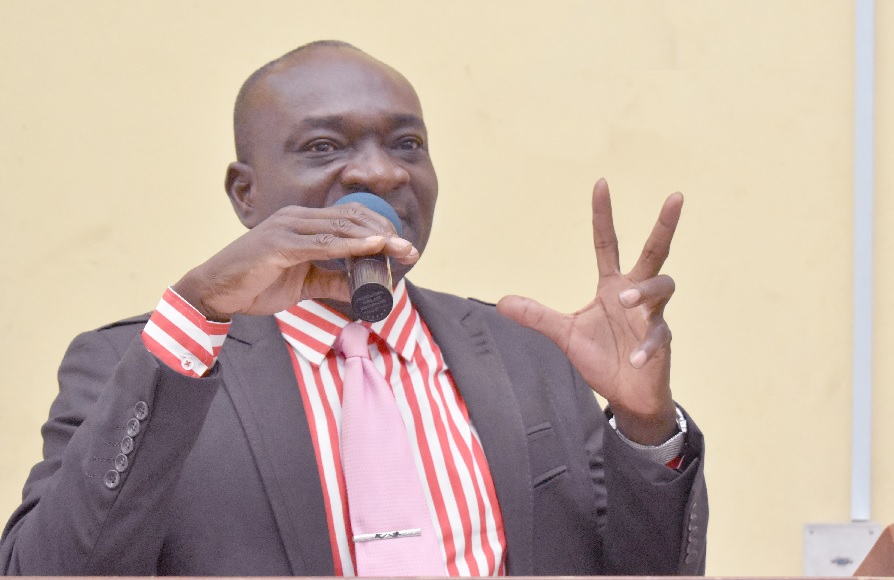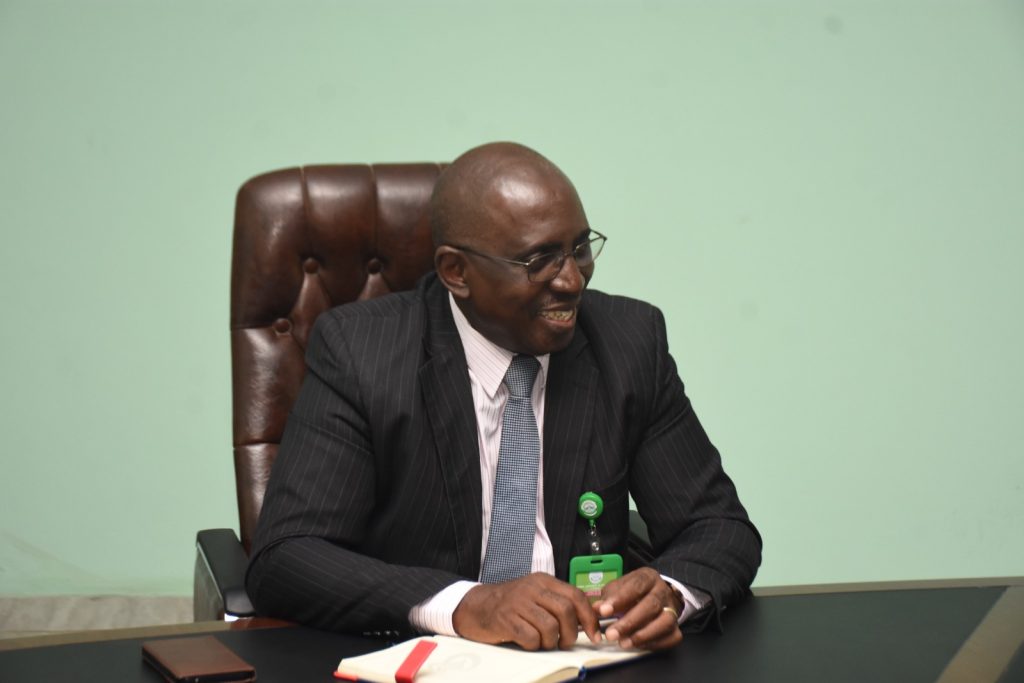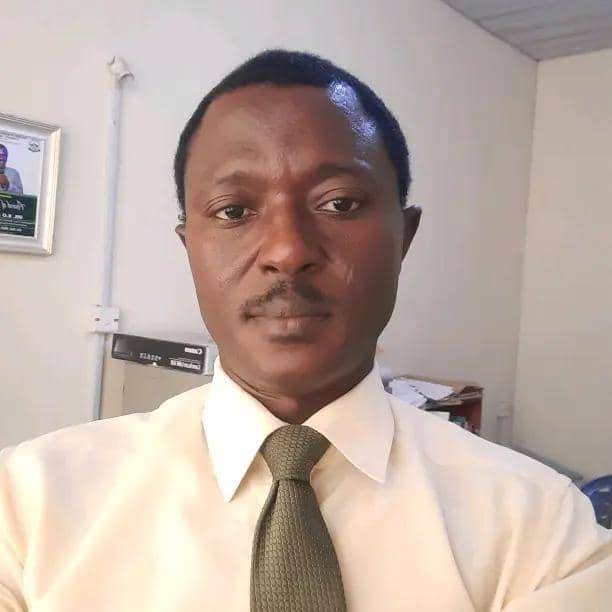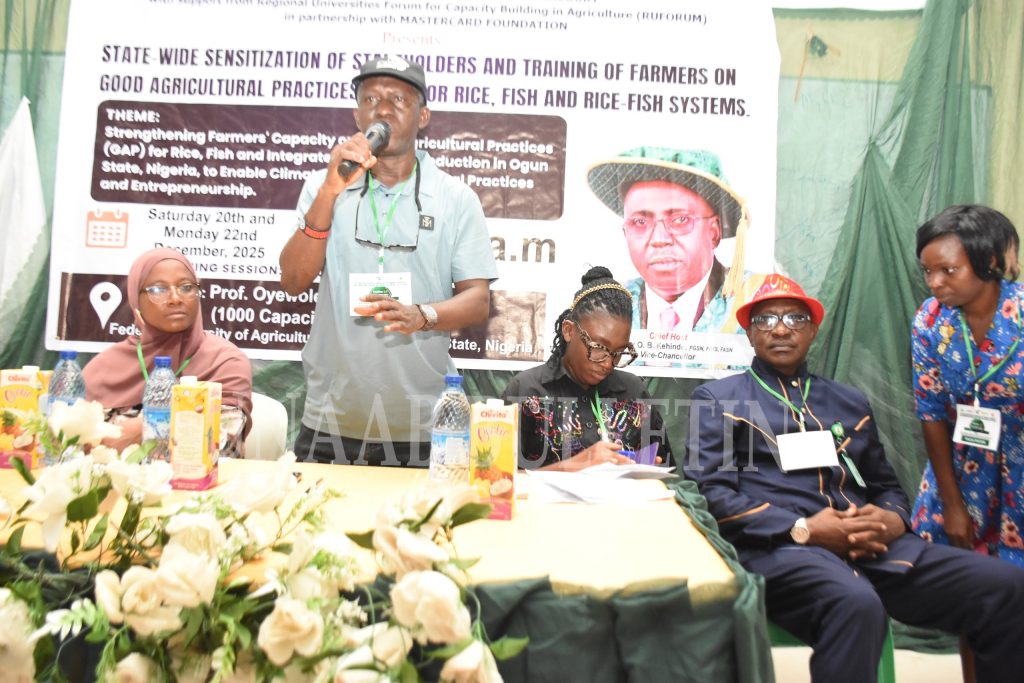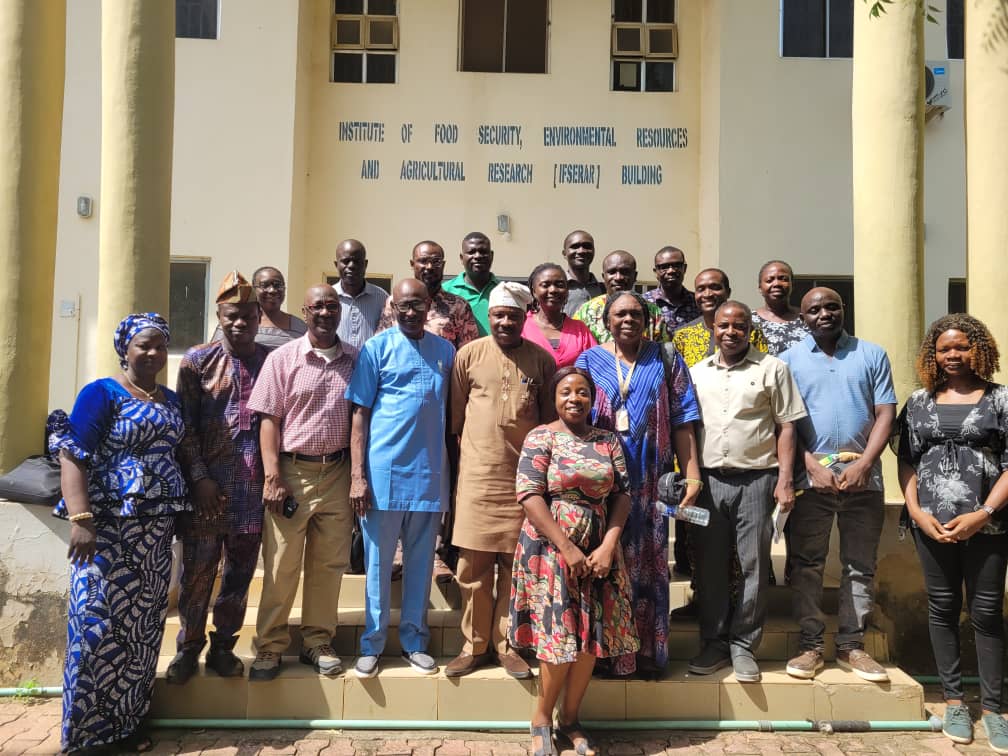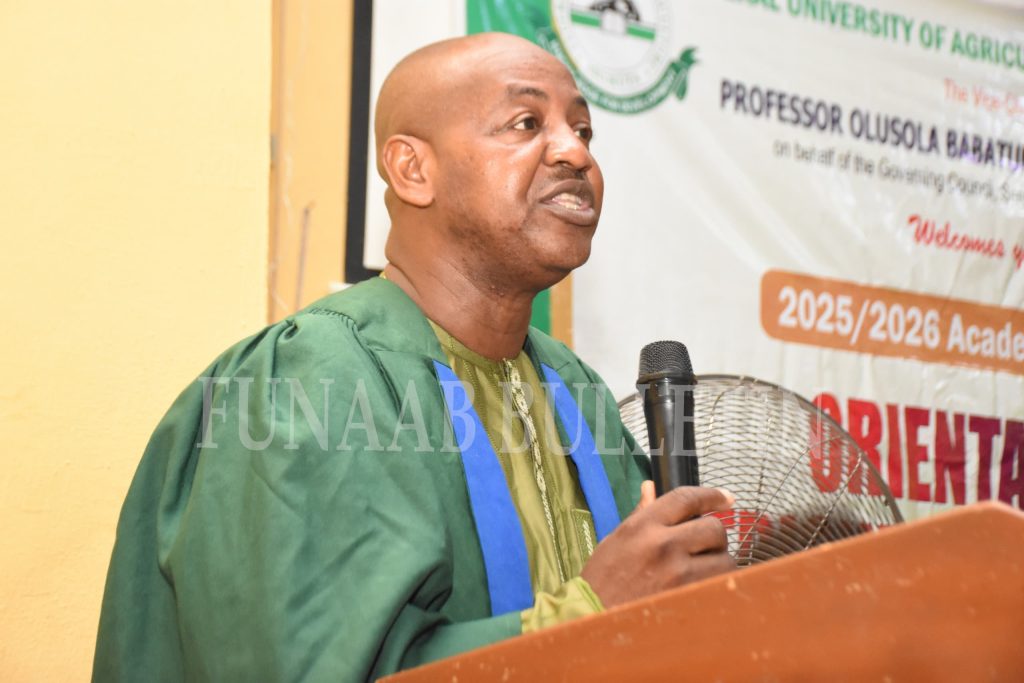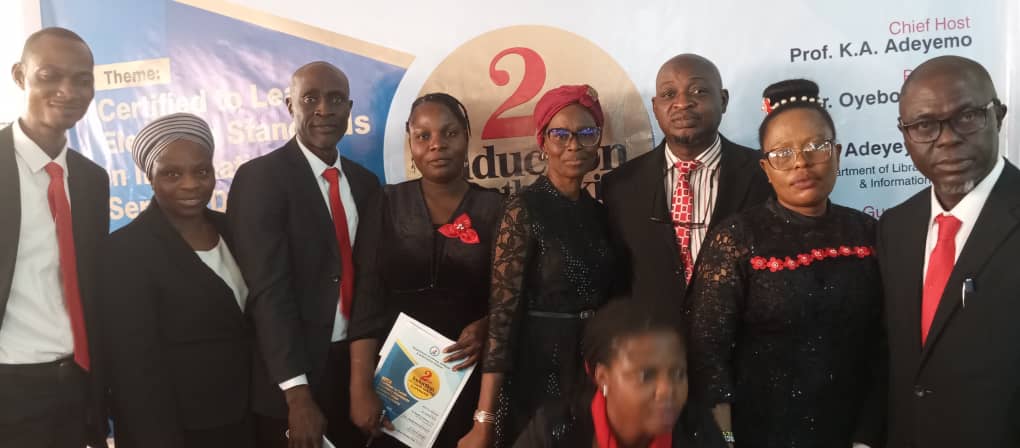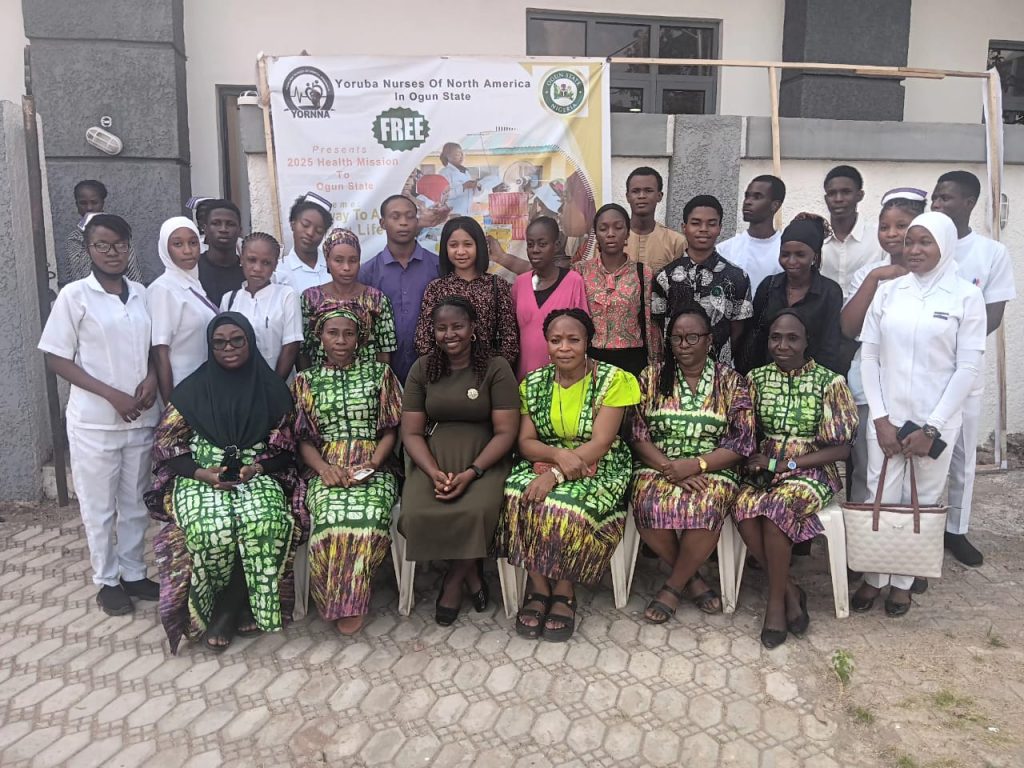Last Updated on November 7, 2019 by FUNAAB
Migration of brilliant scholars, especially Professors has been identified as the major challenge to quality teaching and research in the nation’s Ivory Towers and Africa in general.
The Vice-Chancellor FUNAAB, Professor Kolawole Salako dropped the hint while speaking at the just concluded International Workshop, organized by the Institution’s Centre of Excellence in Agricultural Development and Sustainable Environment (CEADESE).
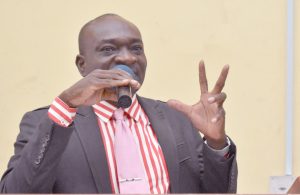
Dissecting the Theme of the Workshop, “Learning Technologies Workshop on the 21st Century Innovative Instructional Methods, Tools and Techniques”, Professor Salako in his Welcome Address declared that Africa still has a long way to go.
He noted with concern that Africa ranks very low in research productivity in terms of publication, adding that in American Chronicle of Higher Education, Africa accounts for far less than two percent of the world’s publication with South Africa leading and trailed by Nigeria and Kenya training behind.
The Vice-Chancellor attributed the deficiency to teething challenges which include migration of Professors to developed countries for greener pastures, poor infrastructure, students and staff unrests, drastic budgets cuts and growing students enrolment.
Professor Salako called for concerted efforts by stakeholders to address the challenges aforementioned, as panacea to realizing quality teaching and research in the country and in Africa’s tertiary intuitions.
The Vice-Chancellor further noted that for the students to be effectively engaged in learning, there is need for us to innovate and improve on content delivery to the ever increasing population.
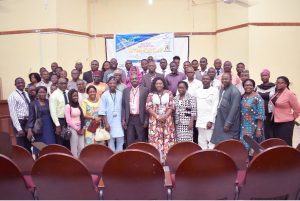
While commending CEADESE for bringing the world to our University, He encouraged the participants to take advantage of the workshop to strengthen their network with members of FUNAAB Community, urging them to visit the facilities that the University is endowed with; and wished the participants a productive deliberation and informative week.
In his Opening Remarks, the Director, CEADESE Professor Olukayode Akinyemi noted that educational research on how the human brain learns has yielded new and more effective instructional pedagogy and approaches, adding that advancement in technology has also led to the development of modern tools to ease teaching, learning and assessment of students.
According to the Director, in Nigeria and some other Sub-Saharan African countries, the use of such instructional methods and tools are not widespread due to lack of awareness or skills to use such tools. He said that the essence of this workshop is to empower staff of higher educational institutions to transit from the traditional format of delivering instruction and assessment to innovative and technology-driven methods.
Professor Akinyemi further added that the Training will develop the much needed skills in participants, in order to use innovative instructional methods and modern technological tools to enhance learning experience for all learners and encourage the transition from the traditional face-to-face lecture style of delivering content and assessment.
Also speaking, the Guest Lecturer and the Chief Executive Officer, Excel Educational Global Consult Ltd, Houston Texas, USA, Mrs. Betty Kajoh recalled that before industrialization, education was only for the privileged, it was costly and only the wealthy can assess it. She noted that after the industrial revolution, government began to put a lot in place, in order to make education more accessible to the people.
According to Mrs. Kajoh, the role of education has moved beyond the ability to read, write and perform simple tasks. She observed that with the advent of information technology revolution, the goal of education is to perform many tasks and where the world is heading now, many civil service oriented jobs are being taken over by robots and machines, adding that education is changing and the work force and the new jobs are demanding that they create a kind of learner that the old teaching pedagogy cannot satisfy.
She noted that as the world is a global village, the children in our country have to compete with children from other environment, adding that economy is shifting from blue collar jobs to knowledge based collar jobs.
She said that it is important that we shift our instructional method so that we can use student centred learning theories and psychology to research the best way the brain takes in information, noting that we must organize learning so that everybody with talent is successful, adding that we must know how we can compete with everybody. Mrs. Kajoh said that countries like India and Asia have utilised education to transform their economy.
According to the Guest Lecturer, we must reflect on why are we are not producing what the world wants, observing, that it is a thing to be educated, and another to be schooled, adding that educators are one of the most powerful people to influence the destiny of a nation.
Finally, she tasked participants to ask themselves “what are we producing, are we producing for certificate or educating to bring better people?”.
Present at the Workshop were the Deputy Vice-Chancellor Development, Professor Lateef Sanni, the University Librarian, Dr. (Mrs.) Fehintola Onifade, Dean College of Plant Science and Crop production (COLPLANT), Professor Muftau Atayese, Director, Centre for Entrepreneurial Studies (CENTS), Professor Babatunde Adewumi, Director Information, Communication Technology Resource Centre (ICTREC), Professor Adesina Agboola and other Scholars from far and within.
Our Related Post
- FUNAAB Set To Rehabilitate Alabata/Camp Road …Poise to buy Central Generator
- CONVOCATION CEREMONY: DAY ONE: FUNAAB Mounts Appeal to Visitor … To restore Management Science – As 113 Bags First Class
- FUNAAB Is Really A Centre of Excellence …FUNAAB ALPHA a real breakthrough –NACGRAB
- NUC Accreditation Team Visits FUNAAB

